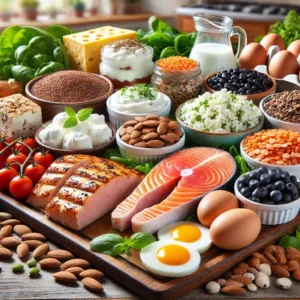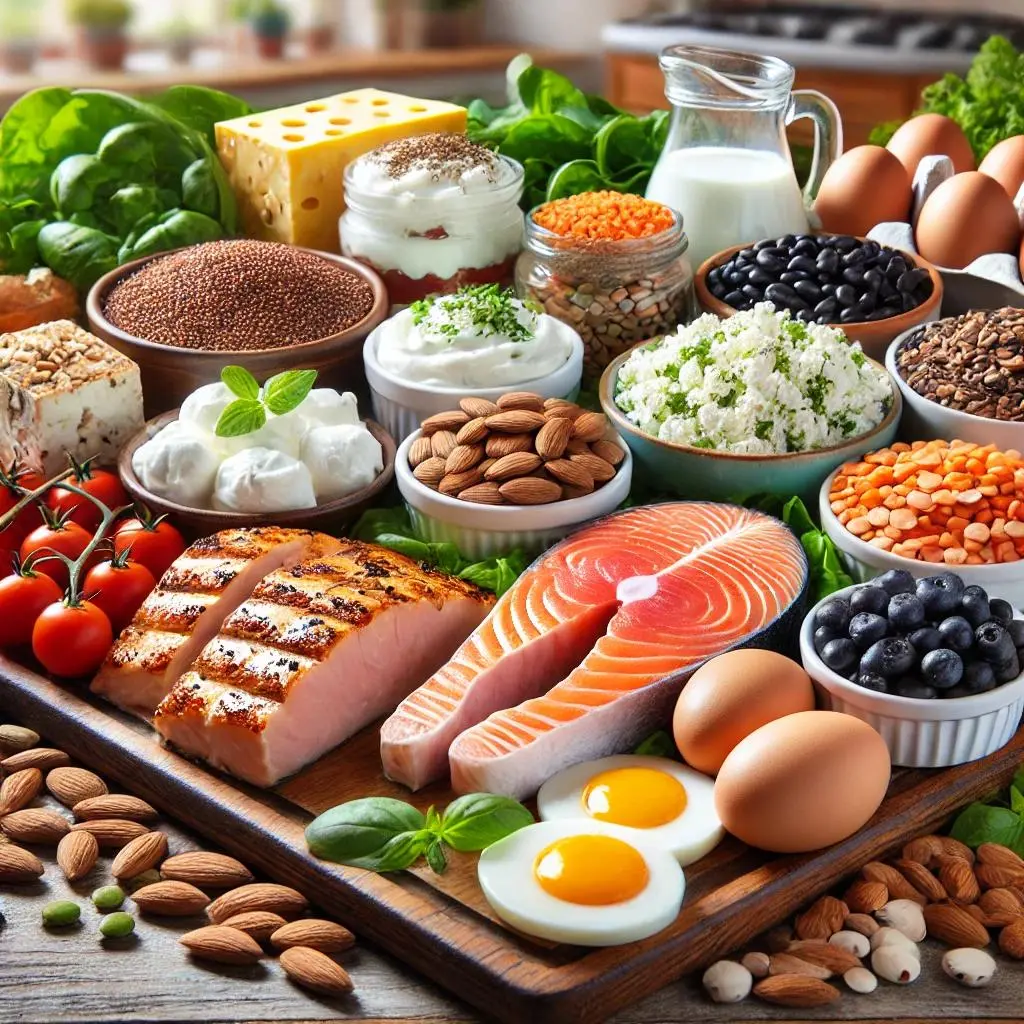The Ultimate Guide to High-Protein Foods for a Healthy Lifestyle
Protein is an essential macronutrient that plays a crucial role in building and repairing tissues, producing enzymes, and supporting overall health. Whether you are a fitness enthusiast, an athlete, or simply someone looking to maintain a balanced diet, consuming high-protein foods is vital. In this blog, we’ll explore the best high-protein foods and how they can benefit your body.
Why Is Protein Important?
Protein is essential for muscle growth, weight management, and overall bodily functions. It helps in maintaining a healthy metabolism, promoting satiety, and supporting immune function. Consuming adequate protein daily can aid in weight loss by reducing hunger and increasing calorie burn.

Top High-Protein Foods
1. Lean Meats
Lean meats like chicken breast, turkey, and lean beef are among the best sources of high-quality protein. They are rich in essential amino acids and help in muscle growth and recovery. A 100-gram serving of chicken breast provides approximately 31 grams of protein.
2. Fish and Seafood
Fish such as salmon, tuna, and cod are excellent protein sources. They are also packed with omega-3 fatty acids, which are beneficial for heart health. A 100-gram serving of salmon contains about 25 grams of protein.
3. Eggs
Eggs are one of the most affordable and versatile sources of protein. They provide high-quality protein along with essential vitamins and minerals. One large egg contains about 6 grams of protein.
4. Dairy Products
Dairy products like Greek yogurt, cottage cheese, and milk are rich in protein and calcium. Greek yogurt, in particular, is an excellent choice, offering around 10 grams of protein per 100 grams.
5. Legumes and Beans
Lentils, chickpeas, black beans, and kidney beans are great plant-based protein sources. They are also rich in fiber, promoting digestive health. One cup of cooked lentils provides about 18 grams of protein.
6. Nuts and Seeds
Almonds, peanuts, chia seeds, and flaxseeds are protein-rich snacks that also offer healthy fats and fiber. A handful of almonds (about 28 grams) contains around 6 grams of protein.
7. Tofu and Tempeh
For vegetarians and vegans, tofu and tempeh are excellent protein sources. They are made from soybeans and provide around 10–19 grams of protein per 100 grams.
8. Protein-Rich Grains
Quinoa, oats, and brown rice contain significant amounts of protein. Quinoa, for example, provides about 8 grams of protein per cup and is considered a complete protein as it contains all nine essential amino acids.
Tips for Increasing Protein Intake
- Include protein in every meal – Start your day with eggs or Greek yogurt, and add lean meats or beans to lunch and dinner.
- Choose high-protein snacks – Nuts, protein bars, or cottage cheese are great options.
- Opt for protein shakes – If needed, supplement with whey or plant-based protein powders.
- Prepare meals in advance – Having pre-cooked protein sources like grilled chicken or boiled eggs can help maintain a protein-rich diet.
Final Thoughts
Incorporating high-protein foods into your diet is essential for overall health, muscle growth, and weight management. Whether you prefer animal-based or plant-based protein, there are plenty of nutritious options to choose from. Make sure to balance your protein intake with other macronutrients for a well-rounded and healthy diet.
Start making smart food choices today and enjoy the numerous benefits of a high-protein diet!
